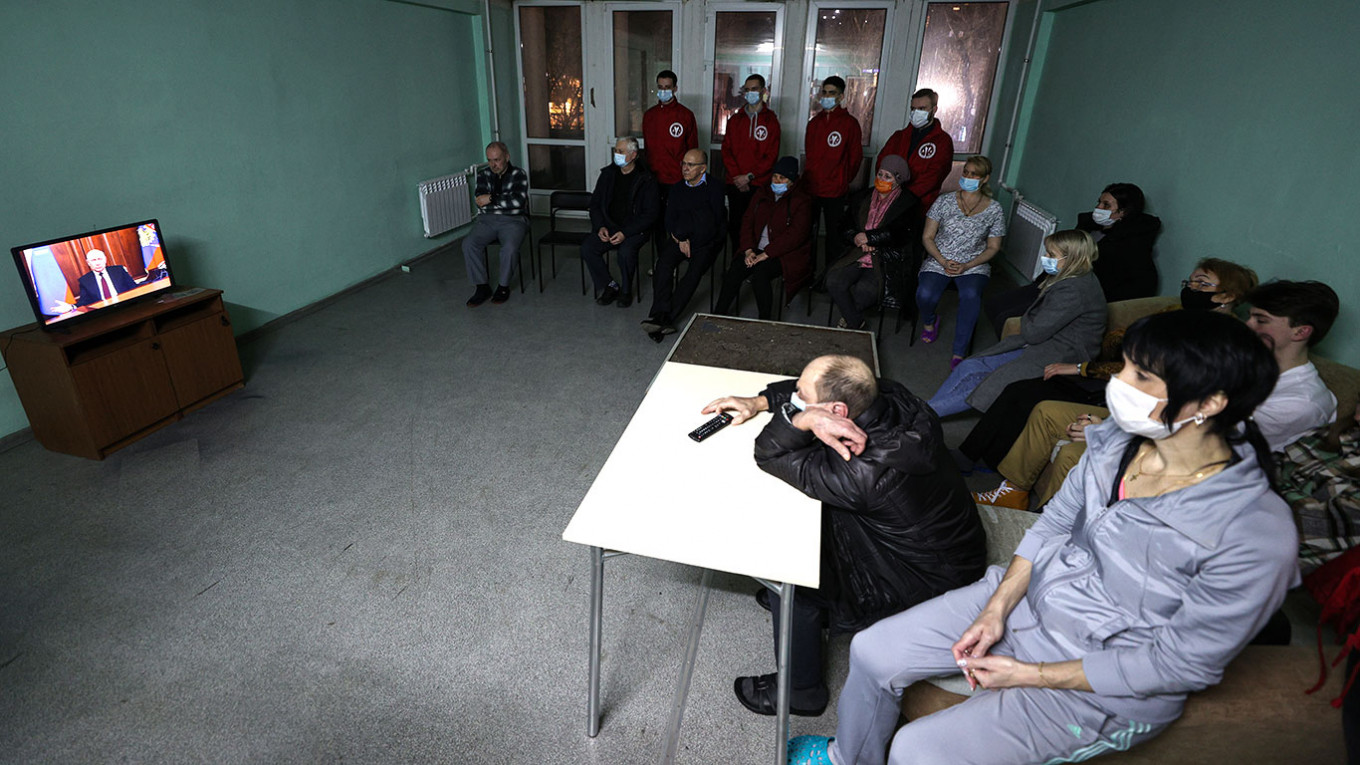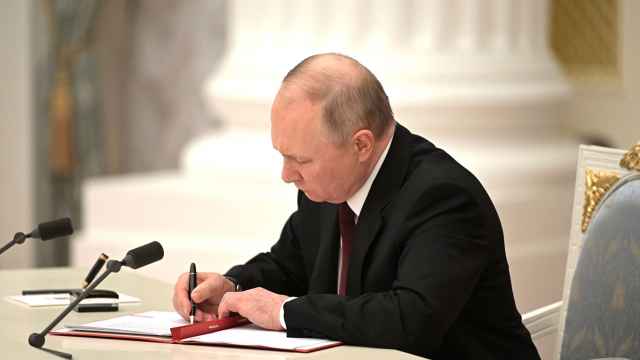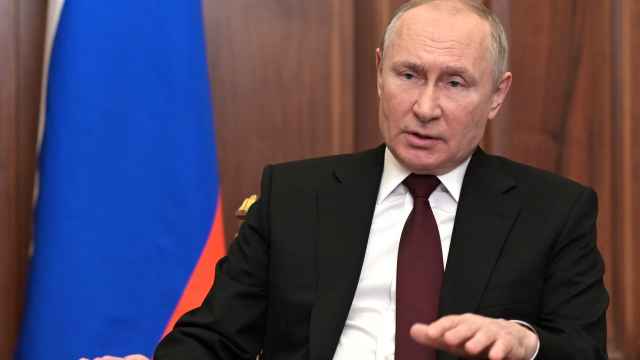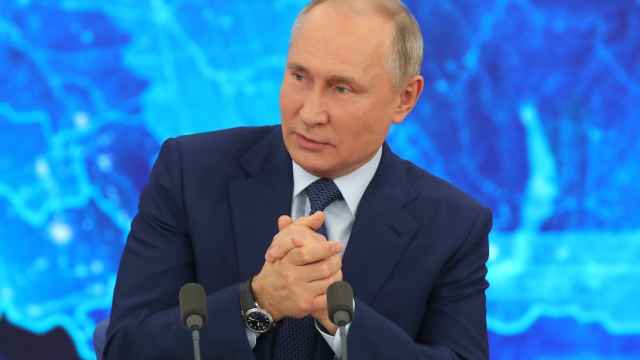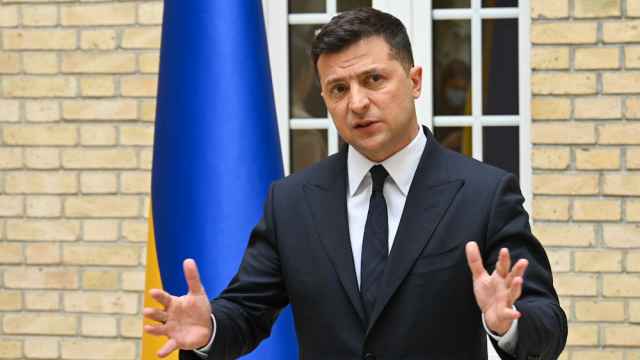ROSTOV-ON-DON — As Vladimir Putin addressed his people in an hour-long speech announcing Russia’s recognition of the secessionist Donetsk and Luhansk People’s Republics in Eastern Ukraine, in one Irish pub in the border city of Rostov-on-Don interest was limited.
“I really, really hope there’s no war,” said 31-year-old bartender Roman Sazonov.
“I try to be as apolitical as I can be, but a war would be a total disaster,” adding that he is half-Ukrainian himself.
In the background, a few patrons watched the address — in which Putin denounced Bolshevik leader Vladimir Lenin for creating Ukrainian statehood — on their smartphones.
Others shared memes and videos poking fun at the news, one mock-announcing a 50% cut in the Russian ruble’s value.
They were reactions in line with public polling in Russia, which shows little appetite for a new war with Ukraine, in sharp contrast to the 2014 annexation of Crimea, which was met by widespread rejoicing from the population.
In Rostov-on-Don, which lies 95 kilometers from the breakaway Donbas region, news that Russia will send troops across the border hits harder than elsewhere in Russia.
Many locals have friends and family in the separatist strongholds of Donetsk and Luhansk, or even further afield in government-controlled parts of Ukraine.
Almost exactly eight years ago, Rostov provided refuge for the ousted pro-Russian Ukrainian President Viktor Yanukovych, after the Euromaidan revolution in Kyiv touched off the current confrontation between Ukraine and Russia.
Since then, Rostov has hosted tens of thousands of Donbas natives seeking work and safety across the border in Russia.
Over several days in and around the city, The Moscow Times saw substantial amounts of military hardware and many personnel moving in the direction of Ukraine.
The close ties between communities on each side of the border give many locals a clear sense of loyalty when it comes to the status of the Donbas.
An hour after Putin’s speech ended, taxi driver Sergei, 38, hadn’t heard the news, but greeted it with approval when informed of the president’s decision.
“Putin recognized the Donbas? Excellent,” he said.
“Of course, there are good and bad people in every nation, but the Ukrainians are moral prostitutes,” he added.
Despite such sentiments, no great clamor for war was evident on Rostov’s streets.
Late on Monday afternoon, as Putin held a televised meeting of his Security Council showing top officials lining up to state their support for recognizing the Donbas republics, Rostov’s riverside embankment was the picture of normality.
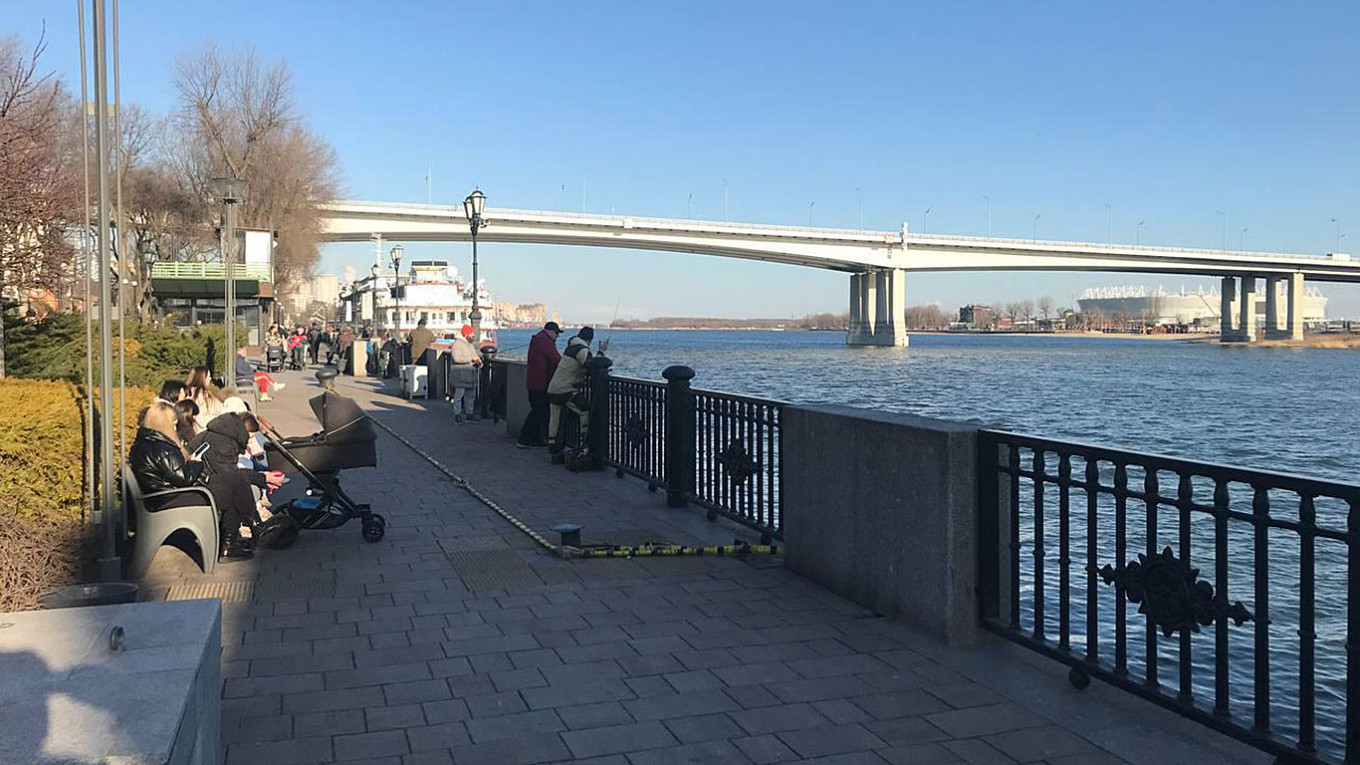
Across the river Don from the city’s massive new football stadium, built to host matches for the 2018 football world cup, locals were enjoying the winter sun as families strolled with children and old men fished.
The only hint of the historic events unfolding hundreds of miles away in Moscow was two teenage girls sitting on a bench streaming the pre-recorded meeting on their smartphones.
'Cognitive dissonance'
Even among some natives of the Donbas, most of whom support recognition and ultimately annexation by Russia, reaction to the news was cautious.
Although the state-controlled news agency RIA Novosti published videos purportedly showing celebrations and firework displays in Donetsk in reaction to the news, other locals felt as though the region’s troubles were not over yet.
Alexander Karpak, 28, a native of the industrial town of Alchevsk in the Luhansk People’s Republic who now lives in the Russian city of Voronezh, told The Moscow Times in a telephone interview that the decision to recognize the Donbas led to what he termed “cognitive dissonance.”
Though Karpak supports recognition of the People’s Republics, he said that since coming to Russia, he has become a critic of Putin and a supporter of jailed opposition figure Alexei Navalny. Monday’s announcement put him in the unfamiliar position of approving of the president’s actions.
Even so, Karpak, whose family remain in Alchevsk, said he worried about war, and felt none the wiser about what would happen to his hometown next.
“Hopefully it’ll be more peaceful, but then why would they have conscripted the entire male population?” he wondered, referring to the Luhansk authorities drafting men into the army.
“At the end of the day, we’re all just spectators, staring with open mouths at what’s happening,” he added.
A Message from The Moscow Times:
Dear readers,
We are facing unprecedented challenges. Russia's Prosecutor General's Office has designated The Moscow Times as an "undesirable" organization, criminalizing our work and putting our staff at risk of prosecution. This follows our earlier unjust labeling as a "foreign agent."
These actions are direct attempts to silence independent journalism in Russia. The authorities claim our work "discredits the decisions of the Russian leadership." We see things differently: we strive to provide accurate, unbiased reporting on Russia.
We, the journalists of The Moscow Times, refuse to be silenced. But to continue our work, we need your help.
Your support, no matter how small, makes a world of difference. If you can, please support us monthly starting from just $2. It's quick to set up, and every contribution makes a significant impact.
By supporting The Moscow Times, you're defending open, independent journalism in the face of repression. Thank you for standing with us.
Remind me later.



